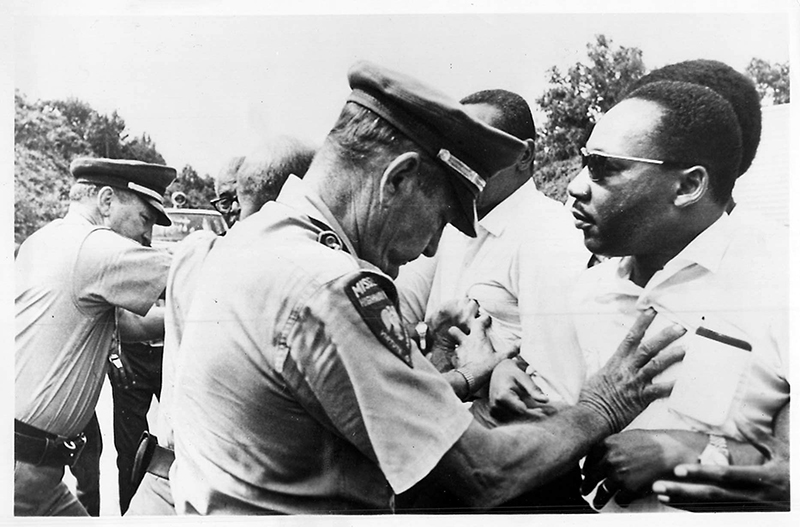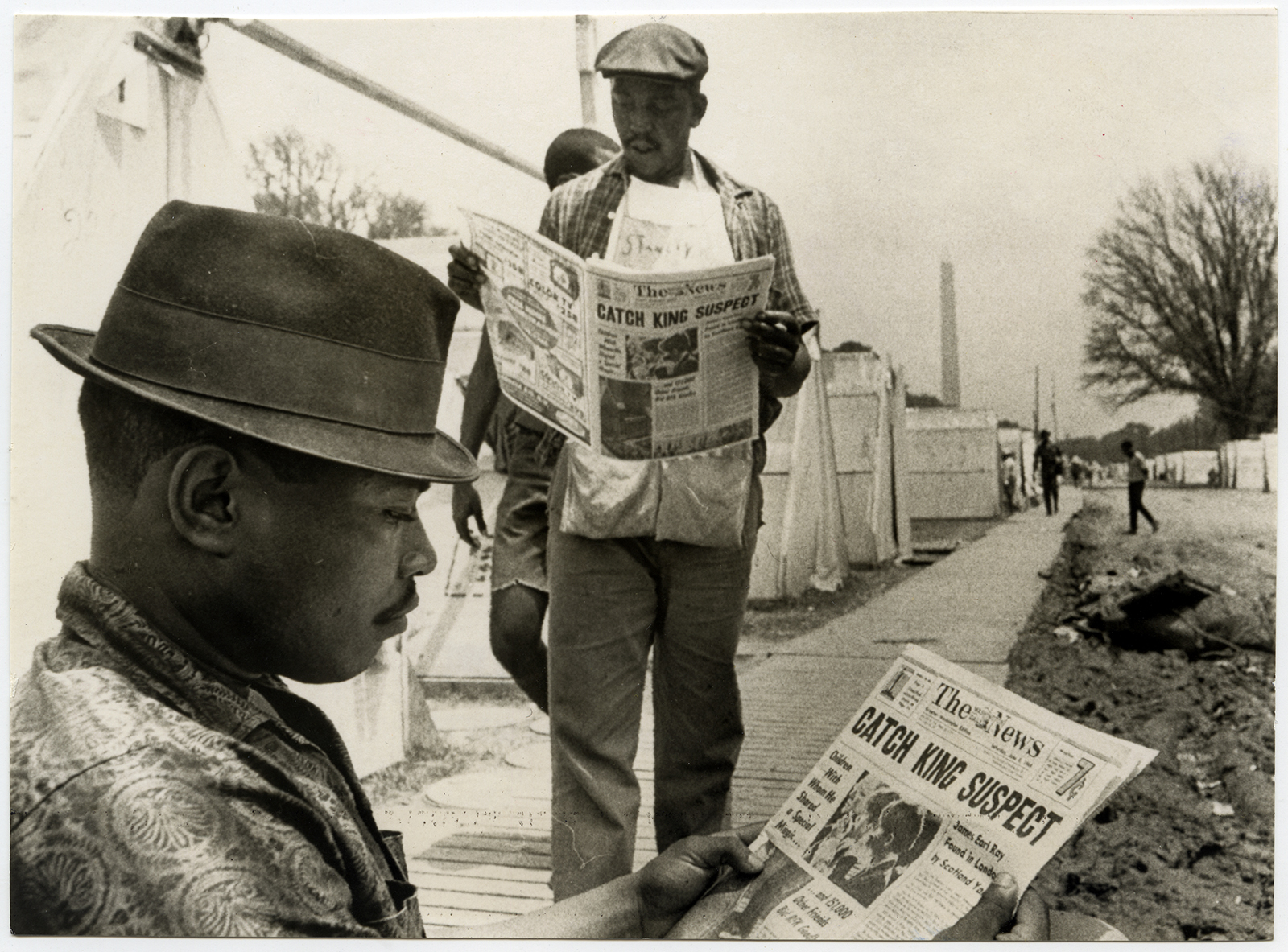The Episcopal Society for Cultural and Racial Unity joined the fellowship in criticizing the seminary, saying King was “one of the most functional ecumenists in the world today, and many lapsed churchmen have returned to the faith of their fathers because of the relevance and heroism which he has exemplified as a Christian leader.”
That month RNS also reported that King began serving four days of a five-day jail term after the Supreme Court declined to review earlier convictions for violating a court injunction against holding demonstrations in Birmingham, Alabama, in 1963.
Speaking at an Atlanta news conference, King called the $50 fine and jail sentence a “small price to pay” because he believed the 1963 demonstrations led to the enactment of the 1964 Civil Rights Act.

The Rev. Martin Luther King Jr., right, and other civil rights leaders, are pushed off the road as they resume a voters march begun by James Meredith. Religion News Service file photo
“But I am sad,” he said, “that the Supreme Court of our land … could not uphold the rights of individual citizens in the face of deliberate use of the courts of the State of Alabama as a means of oppression.”
King was dressed in a denim shirt, sweater and blue jeans and carried a Bible and two other books, RNS reported.
November 1967
Initially taken to the Jefferson County Jail in Bessemer that his aides said was a Ku Klux Klan stronghold, King was transferred to Birmingham. A Nov. 3 RNS story headlined “DR. KING SHIFTED TO ‘SAFER’ JAIL” quotes Jefferson County Sheriff Mel Bailey saying the Birmingham courthouse jail was the “safest place” for King.
At the time of his release, the judge said: “As far as I was able to tell, he was a model prisoner.”
While imprisoned with the Revs. Ralph D. Abernathy, Wyatt Tee Walker and A.D. King, who was King’s brother, the civil rights leaders were planning what became known as the Poor People’s Campaign.
After King’s assassination on April 4, 1968, the massive civil disobedience campaign they planned for the next spring was led by Abernathy.

Inhabitants of Resurrection City, home of the Poor People’s Campaign in Washington, read newspaper accounts on June 8, 1968, of the capture of James Earl Ray, the accused assassin of the Rev.. Martin Luther King Jr., in London. Announcement of the capture was read over the public address system in the campsite. RNS archive photo. Photo courtesy of the Presbyterian Historical Society
This article originally appeared here.

